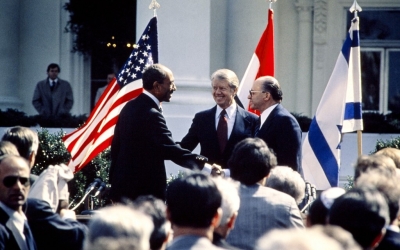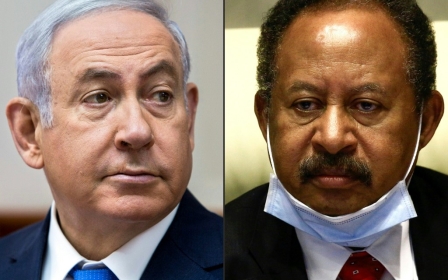Sudan cabinet votes to repeal Israel boycott law

Sudan’s cabinet voted on Tuesday to repeal a 1958 law that forbade diplomatic and business relations with Israel.
The decision still needs the approval of a joint meeting of Sudan's Sovereign Council and cabinet, which together act as Sudan's interim legislative body.
Sudan became the fifth country in the Arab world to formalise relations with Israel in October, after Washington decided to remove Khartoum from the State Department's State Sponsors of Terrorism List (SST).
Under the aegis of former US President Donald Trump, four Arab countries - the United Arab Emirates, Bahrain, Sudan and Morocco - established official diplomatic ties with Israel in 2020, in a break from the decades-old regional consensus conditioning normalisation on a resolution to the Israeli occupation of Palestinian territories.
Following Sudan’s recognition of Israel, the US formally removed Khartoum from the SST list after 27 years.
These incentives were seen as a major boost for Sudan's struggling economy after years of sanctions, and a pivotal step in its efforts to reintegrate into the international community.
After the toppling of longtime autocrat Omar al-Bashir following a popular uprising in 2019, the Sudanese army and opposition groups came to a power-sharing agreement to form a transitional council with both civilian and military leaders.
The normalisation agreement further strained relations between the military and civilian branches of Sudan's transitional government - as the move was widely seen as being at the initiative of the army.
Middle East Eye propose une couverture et une analyse indépendantes et incomparables du Moyen-Orient, de l’Afrique du Nord et d’autres régions du monde. Pour en savoir plus sur la reprise de ce contenu et les frais qui s’appliquent, veuillez remplir ce formulaire [en anglais]. Pour en savoir plus sur MEE, cliquez ici [en anglais].





